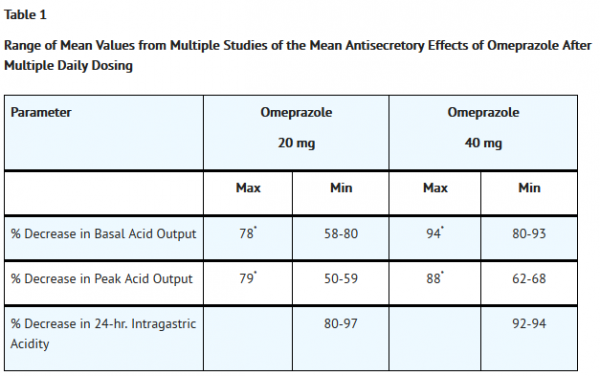Omeprazole Delayed Release 20 Mg

Omeprazole delayed release 20 mg is a commonly prescribed medication for the treatment of various gastrointestinal disorders. This medication belongs to a class of drugs known as proton pump inhibitors (PPIs), which work by reducing the amount of acid produced in the stomach. The delayed release formulation ensures that the active ingredient, omeprazole, is released in the intestines rather than in the stomach, which helps to enhance its absorption and effectiveness.
What is Omeprazole Used For?
Omeprazole is primarily used for the treatment of conditions such as gastroesophageal reflux disease (GERD), Zollinger-Ellison syndrome, and peptic ulcer disease. GERD is a condition where stomach acid frequently flows back into the tube connecting the mouth and stomach (esophagus), causing symptoms like heartburn and acid reflux. Zollinger-Ellison syndrome is a rare disorder characterized by excessive acid production in the stomach. Peptic ulcer disease refers to stomach and duodenal ulcers, which are sores that develop on the inside lining of the stomach and the upper portion of the small intestine.
How Does Omeprazole Work?
The mechanism of action of omeprazole involves the inhibition of the proton pump in the stomach lining. This proton pump is responsible for secreting gastric acid, which is essential for digestion but can be harmful in excessive amounts. By blocking this pump, omeprazole reduces gastric acid secretion, thereby alleviating symptoms associated with excessive acid production, such as heartburn, and allowing for the healing of ulcers.
Dosage and Administration
The dosage of omeprazole delayed release 20 mg is typically taken once daily, before a meal, and should be swallowed whole with a full glass of water. The capsules should not be chewed or crushed, as this could interfere with the delayed release mechanism. The treatment duration can vary depending on the specific condition being treated. For instance, for the treatment of GERD, a common regimen is 20 mg once daily for 4-8 weeks.
Side Effects and Interactions
While omeprazole is generally well-tolerated, it can cause side effects, including headache, diarrhea, nausea, vomiting, and abdominal pain. More severe but rare side effects may include signs of an allergic reaction, severe skin reactions, and kidney injury. It’s also important to be aware of potential drug interactions. Omeprazole can interfere with the absorption of other medications, such as clopidogrel, and can increase the levels of other drugs in the blood, such as warfarin and diazepam, due to its effect on liver enzymes.
Precautions and Warnings
Before starting treatment with omeprazole, patients should inform their healthcare provider about any known allergies, medical conditions (especially liver disease), and medications they are currently taking. Long-term use of PPIs has been associated with an increased risk of osteoporosis-related fractures of the hip, wrist, or spine, although this risk is generally considered to be small. It’s also recommended that patients take the lowest effective dose for the shortest duration necessary to treat their condition.
Conclusion
Omeprazole delayed release 20 mg is an effective treatment option for a range of acid-related gastrointestinal disorders. Its ability to reduce stomach acid production makes it an invaluable medication for those suffering from conditions like GERD and peptic ulcer disease. However, as with any medication, it’s crucial for patients to be aware of the potential side effects and interactions and to follow the prescribed regimen and monitoring recommendations provided by their healthcare provider to ensure safe and effective treatment.
Frequently Asked Questions
What is the most common side effect of omeprazole?
+Headache is one of the most commonly reported side effects. However, it's essential to note that side effects can vary among individuals.
Can I take omeprazole with other medications?
+Omeprazole can interact with various medications. It's crucial to inform your healthcare provider about all the medications you're currently taking to avoid adverse interactions.
How long does it take for omeprazole to start working?
+Omeprazole can start reducing acid production within a couple of hours, but it may take several days of treatment to notice significant improvement in symptoms.
Is omeprazole safe for long-term use?
+While omeprazole is generally safe, long-term use has been associated with certain risks, including increased risk of osteoporosis-related fractures. Regular monitoring by a healthcare provider is recommended.
Can I stop taking omeprazole without consulting my doctor?
+No, it's advised against stopping omeprazole without consulting your healthcare provider, as this can lead to a return of symptoms or other complications.
Omeprazole delayed release 20 mg is a valuable medication in the management of gastrointestinal disorders, offering effective reduction of stomach acid production and symptom relief for many patients. By understanding its uses, mechanism, proper administration, and potential side effects, individuals can work closely with their healthcare providers to manage their conditions effectively and safely.


